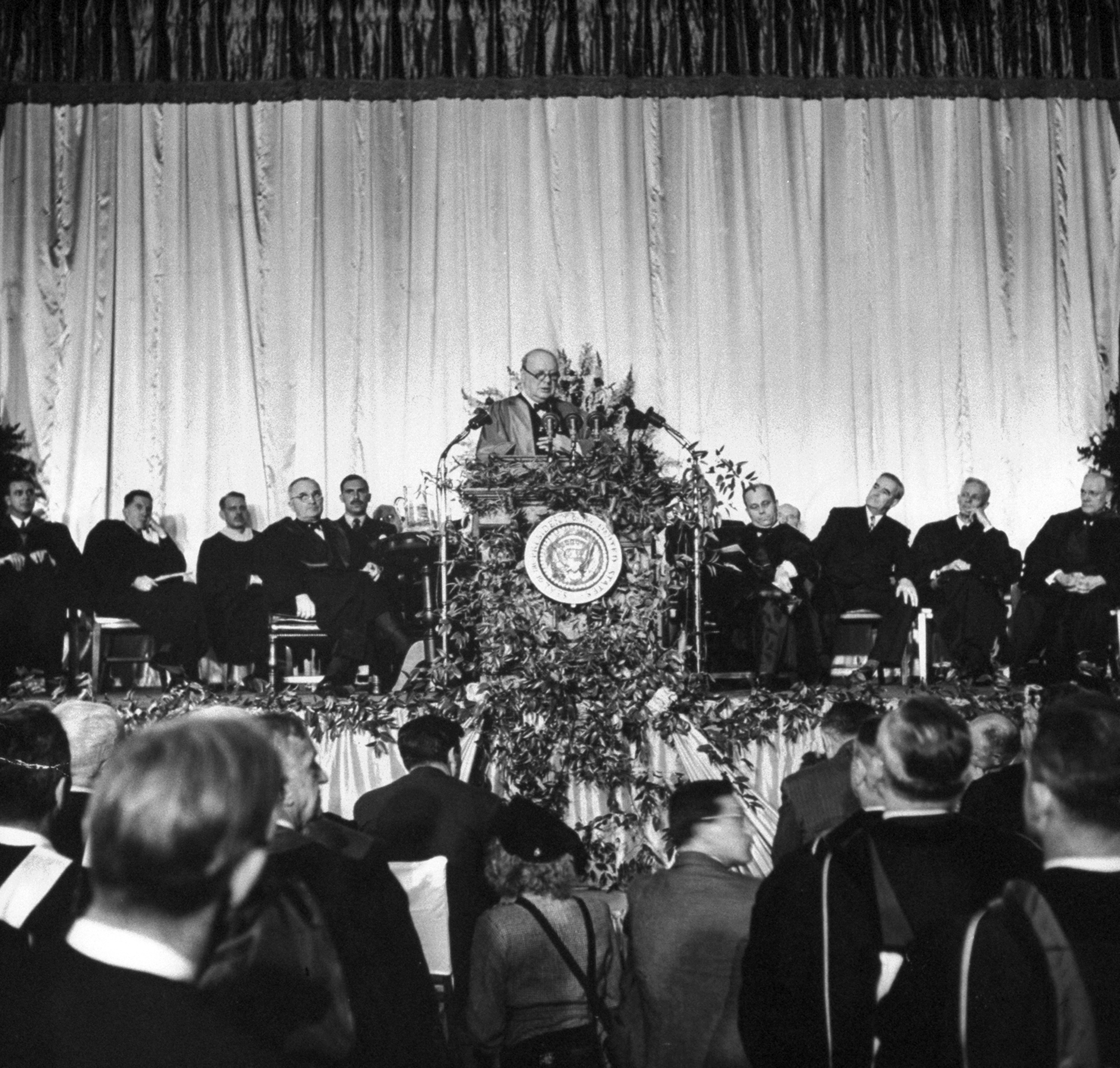
Friday 5 March marks the 75th anniversary of Winston Churchill’s one and only visit to Fulton, Missouri. On the campus of Westminster College, the former prime minister delivered what became known as his “Iron Curtain” speech. With the US President Harry S Truman sitting beside him and the Soviet leader Josef Stalin firing back a blistering diatribe from Moscow, Churchill’s address at Fulton is now seen as a landmark moment in the ideological polarisation of the early Cold War. It is also one of his most celebrated speeches, on a par with those he made in the summer of 1940.
For both these reasons, the anniversary should not pass without comment. Yet there is a larger issue at stake. Churchill’s reputation has eventually been caught in the inevitable whirligig of time, as politicians lauded in their own generation later become targets of criticism and even abuse. This has been particularly apparent in the past year, as the Black Lives Matter movement shifted the spotlight from the champion of freedom against Nazism to the ardent defender of Britain’s empire. Views of Churchill have become increasingly polarised – the Hero of the Right and the Villain of the Left – with each side often displaying a cardboard cut-out figure.



